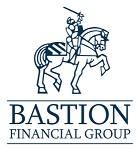COVID-19 sent shockwaves across the world and caused share markets to fall hard and fast earlier this year. While some panicked, savvy investors have been looking out for opportunities.
So, what is it that differentiates the panicked investor and those who use a crisis to buy assets that become cheap overnight?
As the legendary French biologist, Louis Pasteur, said, “chance favours the prepared mind.” If you can invest knowing there will be crises that will temporarily reduce your capital (think the GFC, tech wreck, 1987) but remembering that these crises were also an opportunity to buy great assets at cheap prices, you will become a better investor.
Here are five other bits of “mind preparation” you can do to turn the next crisis into an investment opportunity.
1. Keep a long-term perspective
Unless you’re a trader – looking to make money from quick profits – it’s important to have a long-term investment view. We saw a major decline in share markets earlier this year – and a dramatic recovery. From the 1987 stock market crash to the bursting of the Tech Bubble in 2000, each crisis trigger is different and the time it takes to recover varies too. Recoveries can take months or even years – but history tells is that bull markets (periods when shares go up) typically last a lot longer than bear markets (where they go down).

2. Do your research
There’s a lot of ‘noise’ about the current state of the market, so keeping informed and getting an in-depth understanding about where you’re investing, is key.
Here are just a few of the things you could consider when looking at listed companies in the share market.
-
Does the company have a good track record?
-
Where does it get its earnings from, domestically or internationally?
-
How much debt does it have and when is it up for renewal?
-
How are the company’s earnings going to be affected by COVID-19?
-
Does the business have a strong competitive advantage?
-
Does it have stable revenue and income?
-
What are its risks in different economic environments?
-
What price would you be prepared to pay for shares in the company?
-
What are the risks specific to this company, its industry, and share market more generally?
If you decide to purchase shares in a company, consider monitoring it and any share market announcements, including financial updates or results, issues affecting the industry and any competitors.
You may also want to keep an eye out for any news coverage and interviews about the business to get a feel for their current and long-term viability.
That’s just the beginning. You need to consider how you’ll reduce your exposure to the risks of investing in that company. Most people manage that risk by investing in many companies and asset classes because their performance is influenced by different factors.
3. Look for the red flags
It’s important to distinguish between companies who have seen their share price fall as a result of market panic, caused by events like COVID-19, and those that have fallen because they were already unstable.
To begin, consider how much COVID-19 will affect the company now and in the future. It’s also important to look at the company’s balance sheet and business model to see if it can withstand this pandemic, or if its prospects could be substantially compromised by economic stress. Other red flags to look out for include companies with a significant amount of debt.
4. Consider contributing regularly
One of the ways to take advantage of a market downturn is to regularly contribute a fixed amount to your investment portfolio. The main benefit of this, as opposed to making a lump sum payment, is that it can help to reduce the impact of market volatility.
If you’re contributing the same amount of money as you were when markets were performing well, then when markets fall, you’re effectively purchasing at lower prices. For long-term investors, this is a great way of taking the guess work out of timing when to invest. The reality is, no one knows the best time to invest. Regular investing creates discipline – it forces you to buy in tough times (when prices are cheap, but people are fearful). And that can pay off over the long run.
5. Seek support from professionals
Investment manager
You may not have the time or resources to do the analysis required to identify quality long-term investments so investing with a professional investment manager is an alternative.
These companies have teams of experienced investment professionals doing the hard work for you and you pay them a fee for it. It’s important to consider if you’re comfortable with their investment approach and how they manage risk versus return.
Financial adviser
Obtaining independent advice from a financial adviser, before making any decisions, can help you design a plan to achieve your own financial goals. It may also provide you with a better understanding about the risks and rewards of investing and the appropriate investments for you.
Please contact us on Phone (08) 6225 5150.
Bottom line: share markets are unpredictable so remember to keep a long-term perspective. It’s important to stay informed and seek support from professionals.
Source : MLC Insights August 2020
National Australia Bank Limited. ABN 12 004 044 937 AFSL and Australian Credit Licence 230686. MLC Limited uses the MLC brand under licence. MLC Limited is a part of the Nippon Life Insurance Group and not part of the NAB Group of Companies. The information contained in this article is intended to be of a general nature only. Any advice contained in this article has been prepared without taking into account your objectives, financial situation or needs. Before acting on any advice on this website, NAB recommends that you consider whether it is appropriate for your circumstances.
Important: Any information provided by the author detailed above is separate and external to our business and our Licensee. Neither our business nor our Licensee takes any responsibility for any action or any service provided by the author. Any links have been provided with permission for information purposes only and will take you to external websites, which are not connected to our company in any way. Note: Our company does not endorse and is not responsible for the accuracy of the contents/information contained within the linked site(s) accessible from this page.






